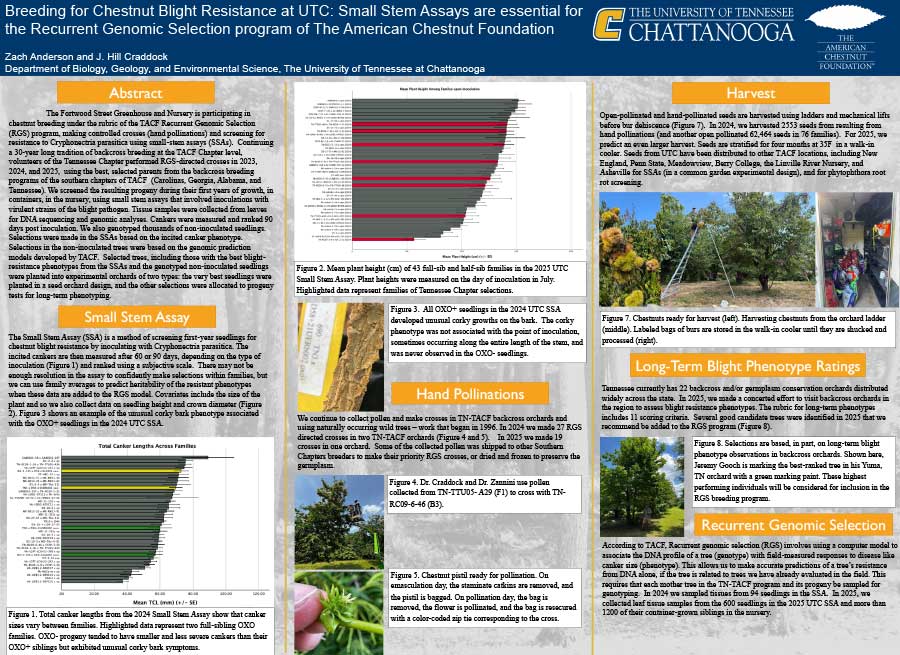2025 Poster Session
Anderson, J.Z. and Craddock, J.H., 2025
Click image to view PDF.
Abstract
Breeding for Chestnut Blight Resistance at UTC: Small Stem Assays are essential to the Recurrent Genomic Selection program of The American Chestnut Foundation
Anderson, J.Z. and Craddock, J.H
The University of Tennessee at Chattanooga, Department of Biology, Geology, and Environmental Science, 615 McCallie Ave., Chattanooga TN 37403
The Fortwood Street Greenhouse and Nursery is participating in chestnut breeding under the rubric of the TACF Recurrent Genomic Selection (RGS) program, making controlled crosses (hand pollinations) and screening for resistance to Cryphonectria parasitica using small-stem assays (SSAs). Continuing a 30-year long tradition of backcross breeding at the TACF Chapter level, volunteers of the Tennessee Chapter performed RGS-directed crosses in 2023, 2024, and 2025, using the best, selected parents from the backcross breeding programs of the southern chapters of TACF (Carolinas, Georgia, Alabama, and Tennessee). We screened the resulting progeny during their first years of growth, in containers, in the nursery, using small stem assays that involved inoculations with virulent strains of the blight pathogen. Tissue samples were collected from leaves for DNA sequencing and genomic analyses. Cankers were measured and ranked 90 days post inoculation. We also genotyped thousands of non-inoculated seedlings. Selections were made in the SSAs based on the incited canker phenotype. Selections in the non-inoculated trees were based on the genomic prediction models developed by TACF. Selected trees, including those with the best blight-resistance phenotypes from the SSAs and the genotyped non-inoculated seedlings were planted into experimental orchards of two types: the very best seedlings were planted in a seed orchard design, and the other selections were allocated to progeny tests for long-term phenotyping.
Keywords: Recurrent Genomic Selection, Castanea dentata, Cryphonectria parasitica, Small Stem Assay

